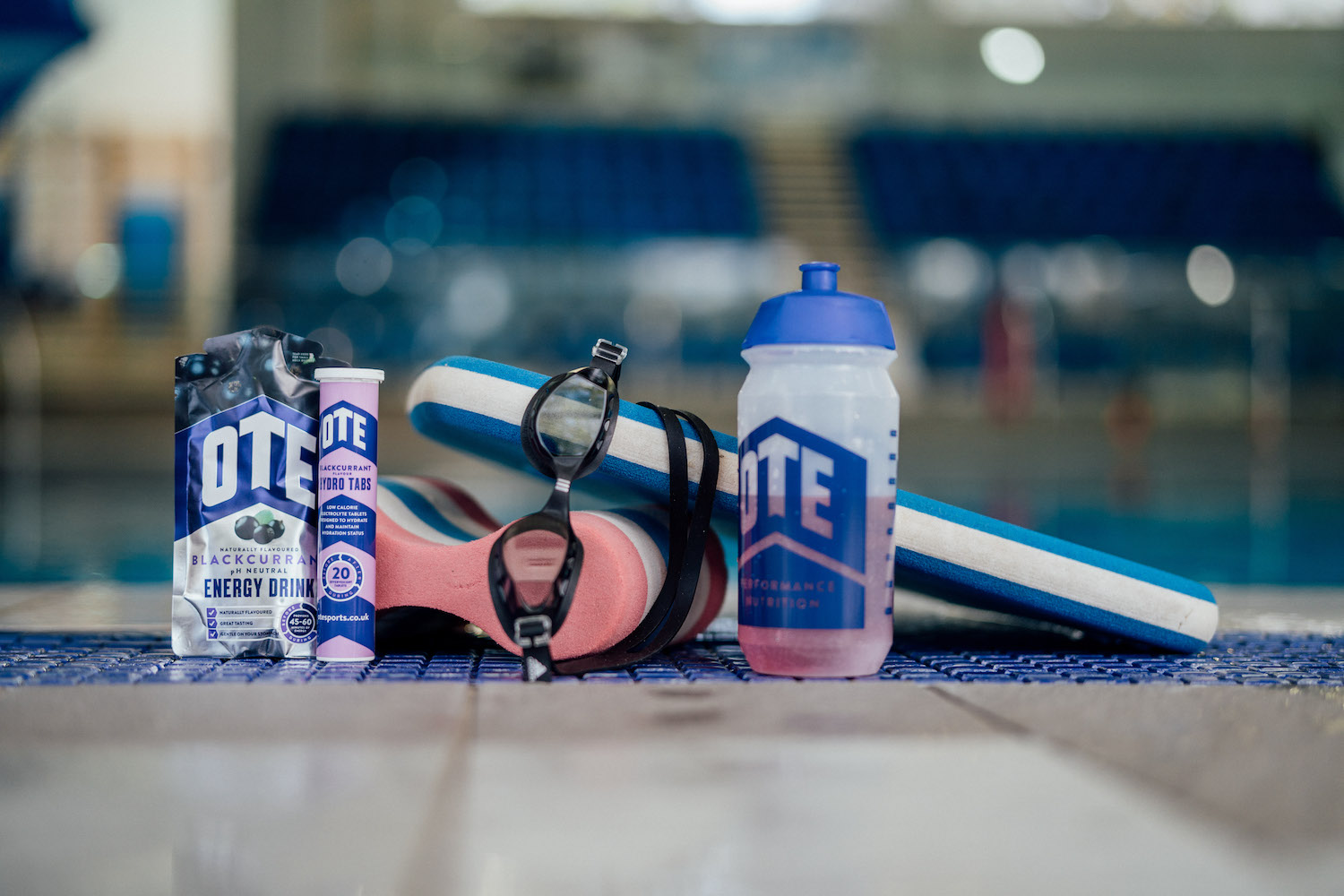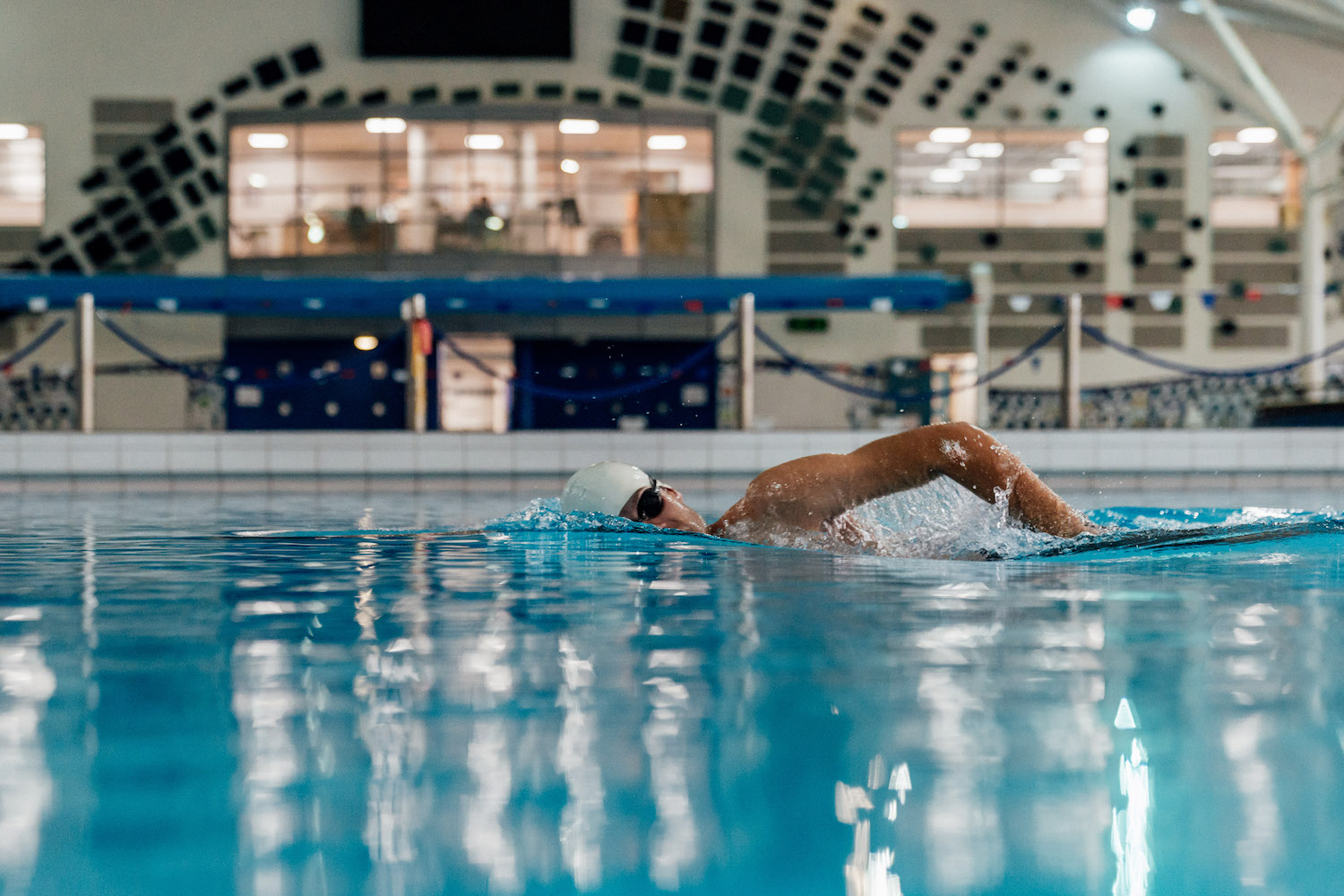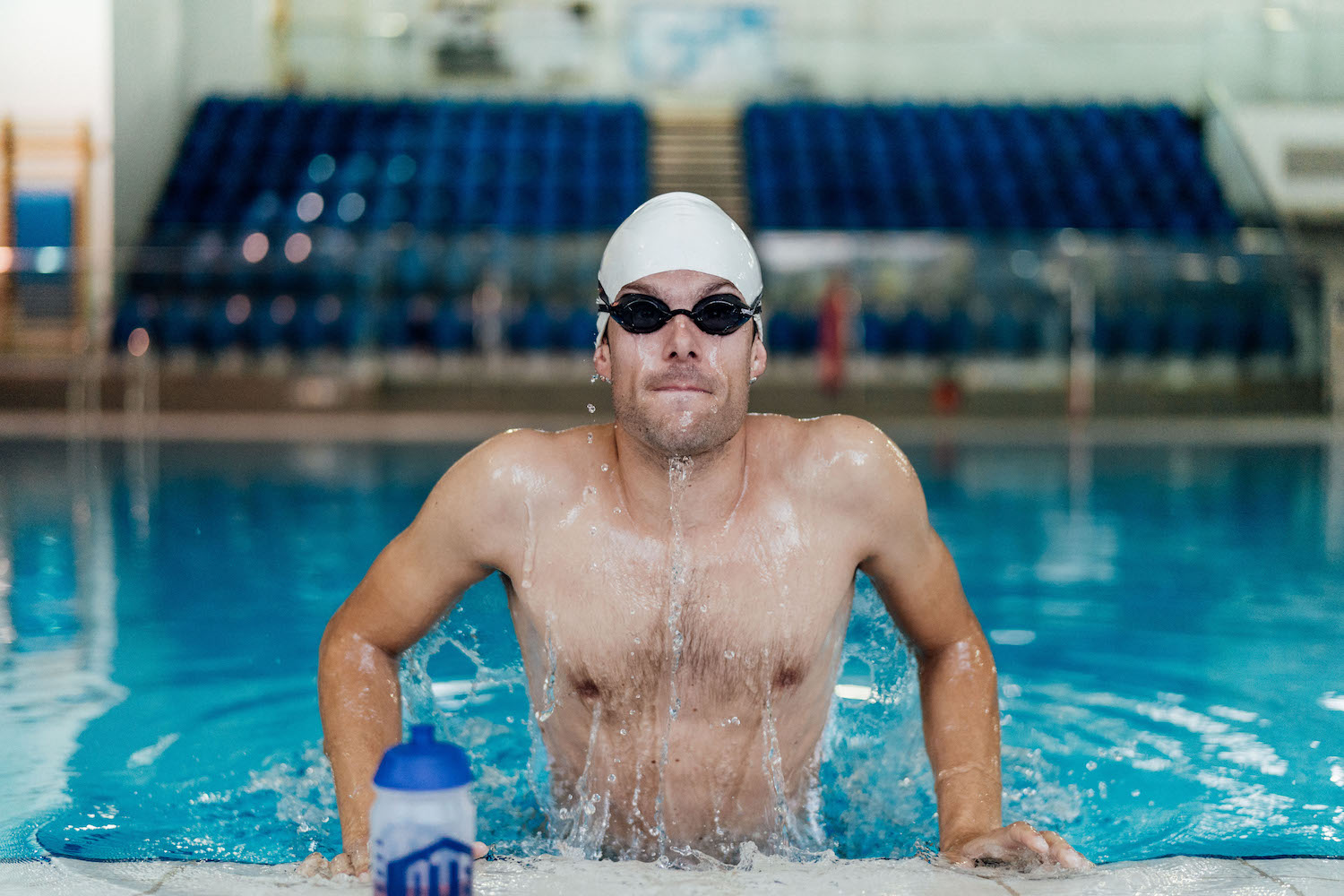It's often perceived that nutrition isn't important for swimming, but this couldn't be further from the truth. That's why we've put together a fuelling guide for swimming.
Swim training requires a diet that is high in carbohydrate to help you maximise your performance, prevent early fatigue and improve recovery and adaptation between sessions.
Before Training
Eating regular meals and snacks based on carbohydrate foods and drinking regularly throughout the day, particularly at key times before your training session is important to help you get the most out of your training. The amount and type of food you consume will depend on how long you have before your training session or race to digest the food;
• 2-4 hours – medium-large serving of carbohydrates e.g. pasta, rice, potato based meals
• 1-2 hours – small-medium serving of carbohydrates e.g. toast, cereals, bananas, Anytime Bar, Duo Bar
• Less than 1 hours – high carbohydrate energy drinks, Duo Bar or energy gel
hydration
It’s important to remember the influence hydration has on our heath and performance. Even as little as a 2% loss in body weight due to dehydration has been show to affect performance by about 10%.
When swimming indoors it is quite easy to over look the fact that you are dehydrating as you are in water and don’t notice your body sweating. Most swimming pools are kept at temperatures >28C, whilst this maybe ideal for a leisure swimming, for those of you undertaking a specific training session with high-energy demands your core body temperature and sweat rates will increase significantly.
Staying hydrated before and during swim sessions will help you maintain the quality of your workout and maximise your performance. It is important to understand it can take the kidneys 30-45 minutes to regulate fluid levels in the body, so increasing fluid intake to approximately 500 ml per hour for about 2 hours before a training session will help to avoid dehydration during training, especially sessions where sweat rates and losses are high. There’s do denying hydration is an important aspect of any fuelling guide for swimming.

During Training
Keep a sports bottle by the side of the pool and drink between sets or in rest periods. You should drink regularly rather than taking large amounts; have a few mouthfuls approximately every 15-20minutes.
Use OTE energy drink during a high intensity workout or if the session lasts longer than 1 hour. For an easy workout or for sessions that last up to 1 hour water with a hydro tab is an ideal part of your fuelling guide for swimming.

Post Training
It is important to start refuelling and rehydrating as soon as possible after training to help your body adapt and improve ready for your next training session.
Aim to refuel and rehydrate within 20-30 minutes of training with a mix of protein and carbohydrates. The hormones and enzymes that promote rapid recovery are most active within 30 minutes of finishing exercise. The best options to promote rapid recovery include;
• High protein OTE Recovery Drink or OTE protein bar and an OTE Hydro Tab
• Sandwiches or pasta salad with egg, ham, chicken or fish.
If your training programme includes multiple sessions per day you should aim to consume a serving of carbohydrate every 2-3 hours during the day. It is also recommended to vary the type of carbohydrate consumed as different carbohydrates are absorbed at different rates. Choose from the suggested options below;
• Breads (bagels, wraps, pittas, etc.)
• Potatoes (white, sweet, yams)
• Pastas (penne, fusilli, spaghetti)
FUELLING ON THE GO
Since your body can only store enough carbohydrate for up to 90-100 minutes of exercise you will need to look into supplementing your carbohydrate intake during sessions of 2 hours or more. If you are undertaking a high intensity session i.e. lots of sprint type efforts it is still important to supplement your carbohydrate intake even if the session is less than 90 minutes as your carbohydrate stores can be rapidly depleted during intense workouts.
You need to take on board between 60-90g of carbohydrate per hour during longer or high intense sessions to maintain carbohydrate supply to your muscles. This can be achieved by using for example:
• OTE energy drink
• OTE Hydro Tab and Energy Gels
Top Tip: Ensure you remain hydrated at all times during swim training and racing.

POOL BASED COMPETITIONS
It is important to ensure that you arrive at the pool fully fuelled and hydrated as previously mentioned. The key to a successful series of races, whether it be a one day event or over several days is to correctly fuel, hydrate and recover after your warm-up, heat, semi-final and final if your are competing in more than one event. Energy drinks, energy gels and Anytime Bars are a great way of getting extra carbohydrate into your body without the bulkiness of more dense carbohydrate foods, especially if the time between races is minimal. A caffeine gel could be used 30-40 minutes before a key race to give you increased mental stimulation.
Long distance or open water swimming
Fuelling and remaining hydrated during long swims of over 5Km is very important. The easiest and most effective way to do this is to consume energy gels and energy drinks when you are in the water to minimize the amount of time you are not moving. Most of the longer open water swim races (upwards of 5Km) have designated feed zones that you should use to your advantage. Having an energy gel or high carbohydrate energy drink as you pass through the feed should pay dividends in the latter part of the race. Caffeine gels can be used towards the end of the race to give you increased mental stimulation.
As a rule of thumb you need to supplement between 60-90g of carbohydrate per hour to maintain carbohydrate supply to your muscles. If you’re not used to consuming this amount of carbohydrate during swimming through the use of energy drinks and energy gels, it’s a good idea to practice your race strategy during longer training sessions whether this is pool or open water based.
Top Tip: Always start a race on full power – fully carbohydrate loaded and hydrated.